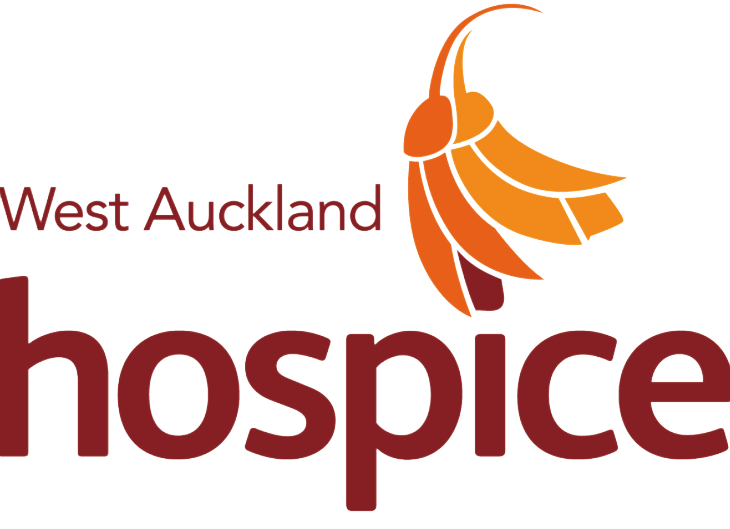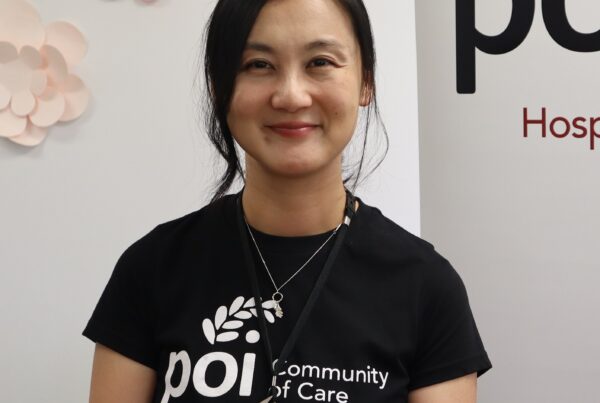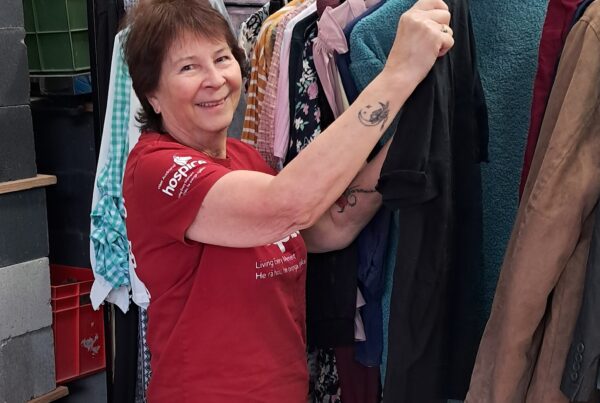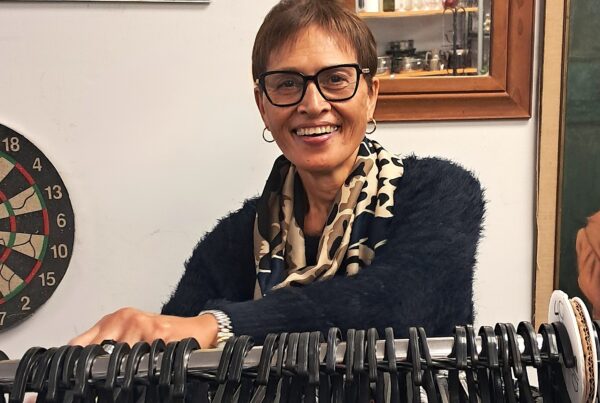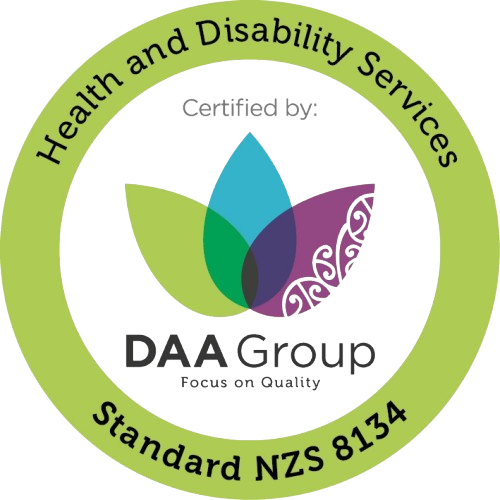In palliative care, medication plays a crucial role in comfort, quality of life, and symptom management. From managing pain and nausea to supporting emotional and psychological wellbeing, the right medicines can make a world of difference. That’s why pharmacists are an essential part of the Hospice West Auckland team, working both directly with patients and behind the scenes to support community healthcare providers.
At the heart of Hospice West Auckland’s clinical services are pharmacists like Carmen and Katie. Carmen is the Clinical Pharmacist, and Katie has been covering her role during maternity leave. Together, they ensure that each patient receives appropriate, timely, and safe medication tailored to their specific needs. Their expertise supports not only patients, but also families, nurses, doctors, and carers every step of the way.
When a patient comes under the care of the Hospice West Auckland team, one of the first steps by the pharmacist is a thorough review of their current medications, medical conditions, and medication history.
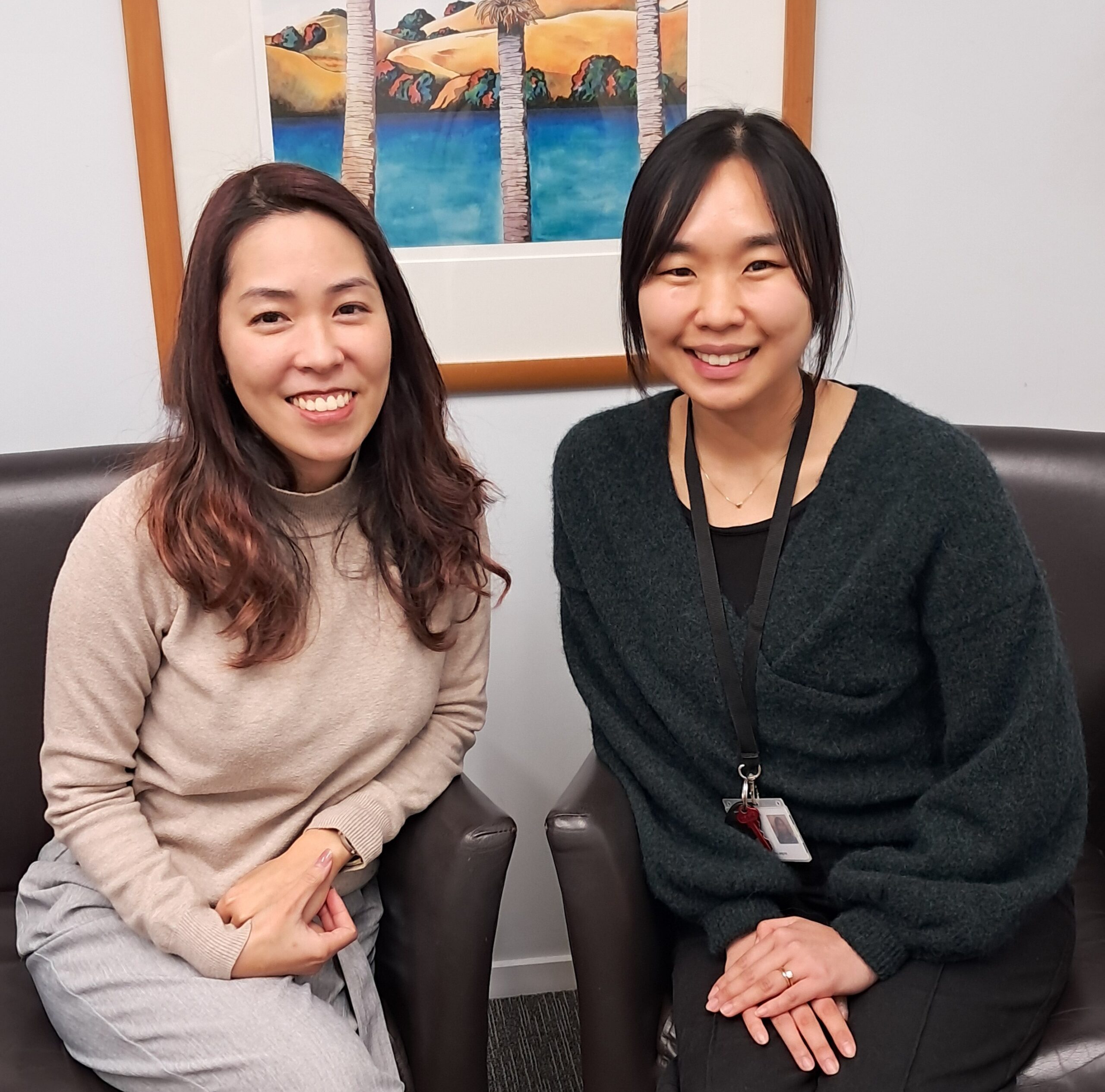
Carmen and Katie
Based on this assessment, recommended changes may be made in collaboration with Hospice doctors and the wider care team. This ensures that everyone involved is aligned and that the patient’s medication plan is safe, effective, and tailored to their needs.
“Often people need help understanding their medications, which affects how they take and manage them,” explains Katie. “We may get a referral from our team saying that this person’s on a lot of medications but is wanting to rationalise – can you please assess?” Involving a patient’s family or caregivers in understanding their medication regime is essential, as they are often the ones managing and delivering it. “We provide tailored medication cards to make it convenient for the patient and family understand the medications they are on,” says Katie. “We may suggest blister packs, sachet rolls, for convenience. We may use demo kits or assisting devices as visual aids which can all help.”
One of the challenges Carmen and Katie can face is balancing long-term medications with those related to palliative care, and broaching the subject with people about potentially stopping long-term medications that are burdensome. “It’s judging when the best time is to have a conversation about regular medication, and do they want to continue on it,” says Carmen.
Adapting treatments to a person’s changing condition is a big part of the role – not just the type of medication required but also its form. “We’re always seeing if we need to switch medications to address changing symptoms, or if there are ways to make administering it more convenient, like mixing with fluids or using syringe drivers (pain pumps),” says Katie. “Palliative care can require you to think outside of the box, so we’re always looking for solutions for each patient’s unique needs,” agrees Carmen. “Part of our role is to research and connect with other pharmacists, see what they’re doing at other Hospices, and then bring those ideas back to the table to discuss with our doctors.”
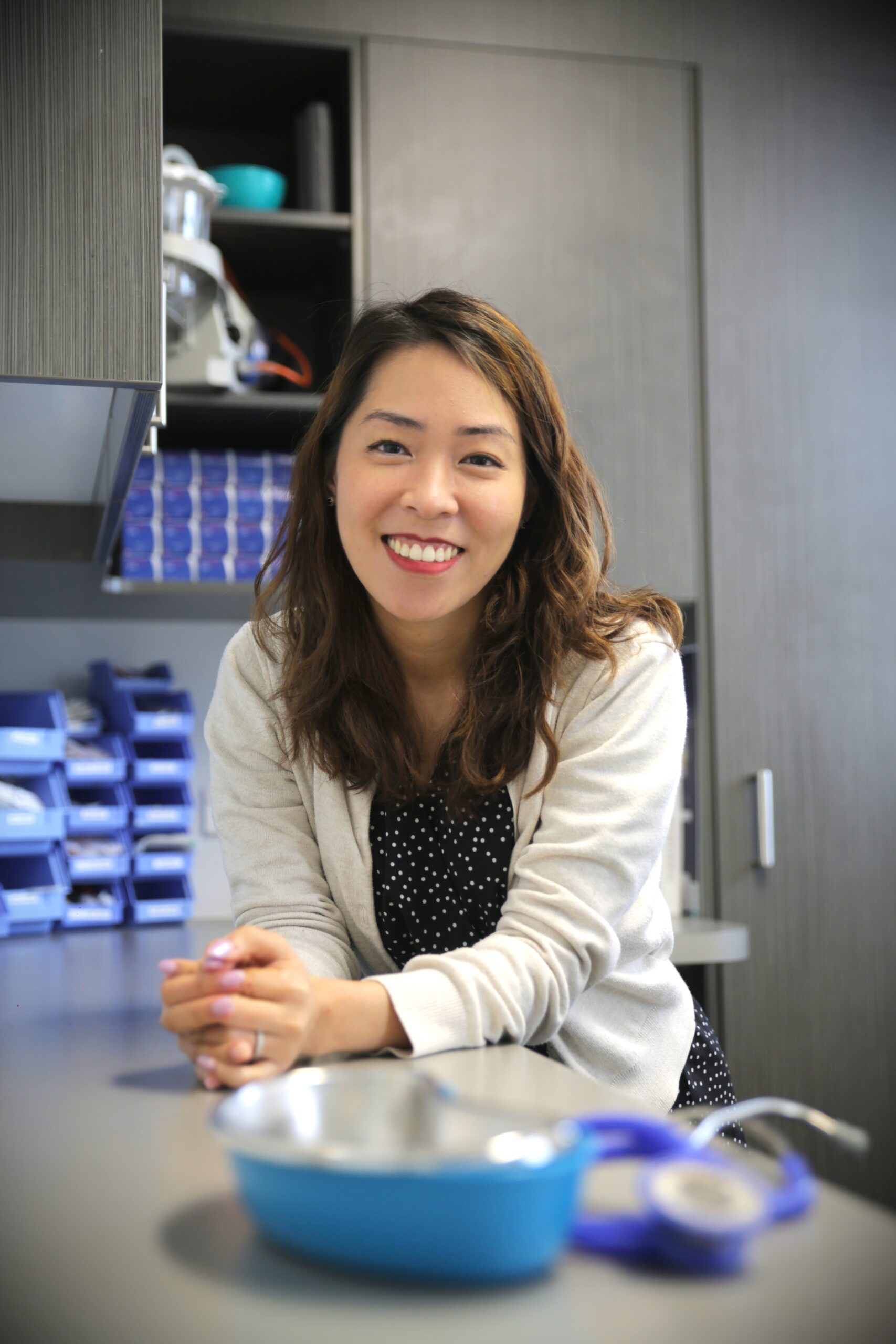
Carmen
Carmen and Katie also work closely with community pharmacies. “We do a lot of facilitation between community pharmacies, because not all pharmacies understand what Hospice does, so we act like a middle person between the doctors, pharmacists and patients,” says Carmen. Coordination of care between the patient and their specialists and GPs is also essential to make sure that everyone is ‘on the same page’ when it comes to medication.
Carmen was in community pharmacy for many years when a personal experience with palliative care changed her perspective. “I developed this interest in palliative care because I felt like I could understand what people were going through – it’s an emotional roller coaster,” she says. “And there were times even for me, as a pharmacist, when I felt overwhelmed by the medications, when to use what, how often and managing the prescriptions and their repeats.”
For Katie, the opportunity to work at Hospice while Carmen took maternity leave has been a wonderful experience. “I’d worked in community pharmacy for a long time and knew some of our regular patients who had transferred into Hospice care, and I could just feel the love, care and professionalism coming from Hospice,” she says. “All of the feedback from the patients and their families was so positive and I started wondering what it would be like to work there too.” Katie feels that her whole perception of Hospice has changed following her time here, and that she is returning to community pharmacy better equipped to understand her patients’ and families’ needs.
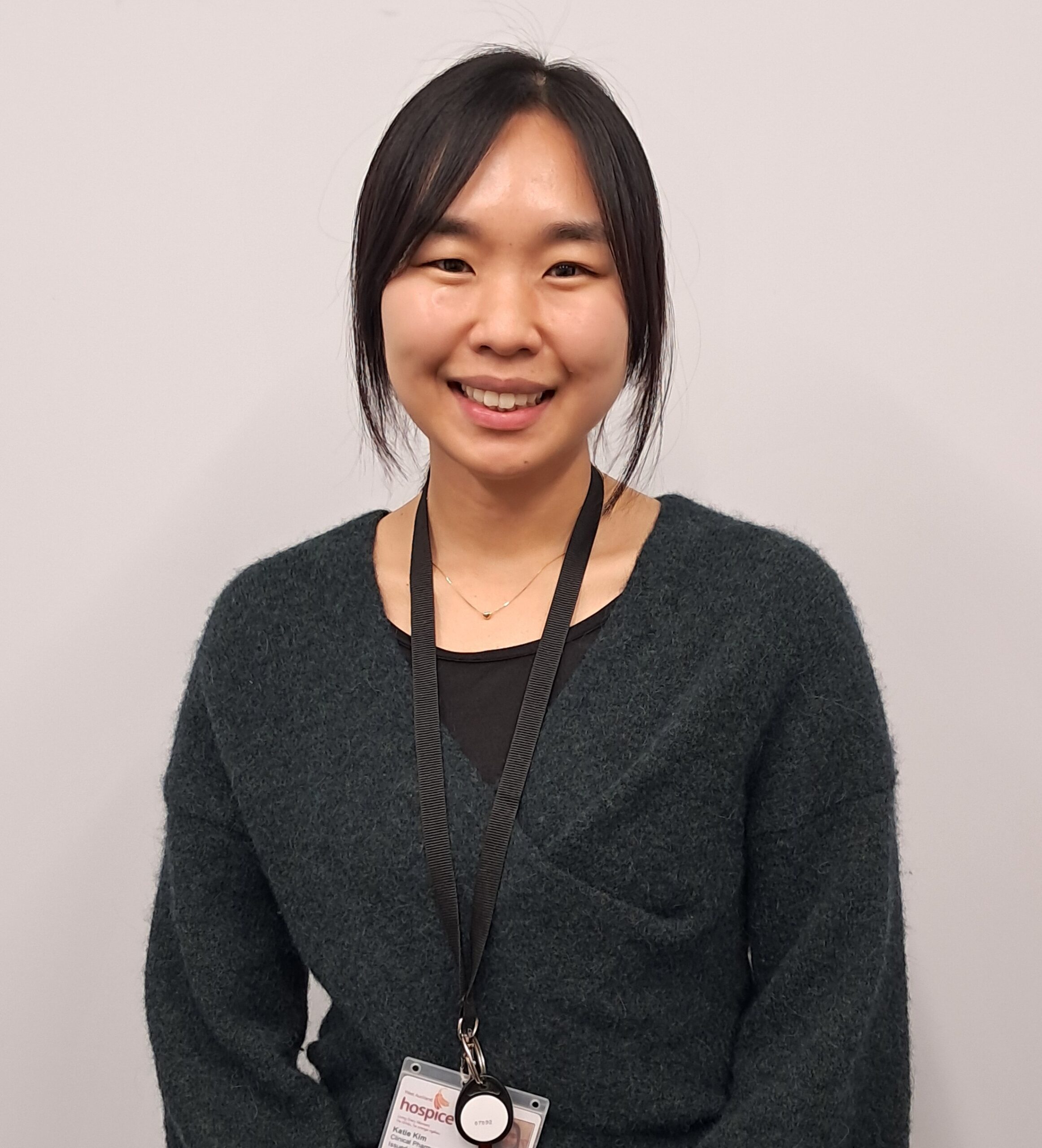
Katie
Both Carmen and Katie feel it’s a big privilege to be able to support people at their most challenging time. “I feel honoured to be a part of this team, and it’s so rewarding when, after our input, the patient has a better understanding of medications and finds medication management to not be so burdensome – I think that’s most rewarding, to use my expertise in that way,” adds Katie.
While Carmen and Katie are focused on the direct care of patients and families, another vital part of the Hospice West Auckland pharmacist team is working in the wider community to build capacity in primary care settings.
Bernadette and Jing are Clinical Liaison Pharmacists in the Poi (Palliative Outcomes Initiative) team, supporting community providers in providing the best possible quality of palliative care to West Aucklanders. Bernadette joined the Hospice Poi team four years ago, and Jing is currently completing a one-year, part-time placement to enhance her community pharmacy background with palliative care expertise.
Poi is a multidisciplinary team, where Bernadette and Jing provide the pharmacist contribution. “Our role is not face-to-face with patients,” explains Bernadette. “A lot of our work involves upskilling and building capability with primary care teams in GP practices and aged care facilities.” The focus is on education, interdisciplinary collaboration, and providing critical medication advice to support patient care.
The team’s work includes input into pre-emptive plans of care, where they conduct comprehensive medicine reviews that go far beyond simple medication checks. “Our contribution always involves talking to colleagues about how medicines fit into broader care advice,” Bernadette emphasises.
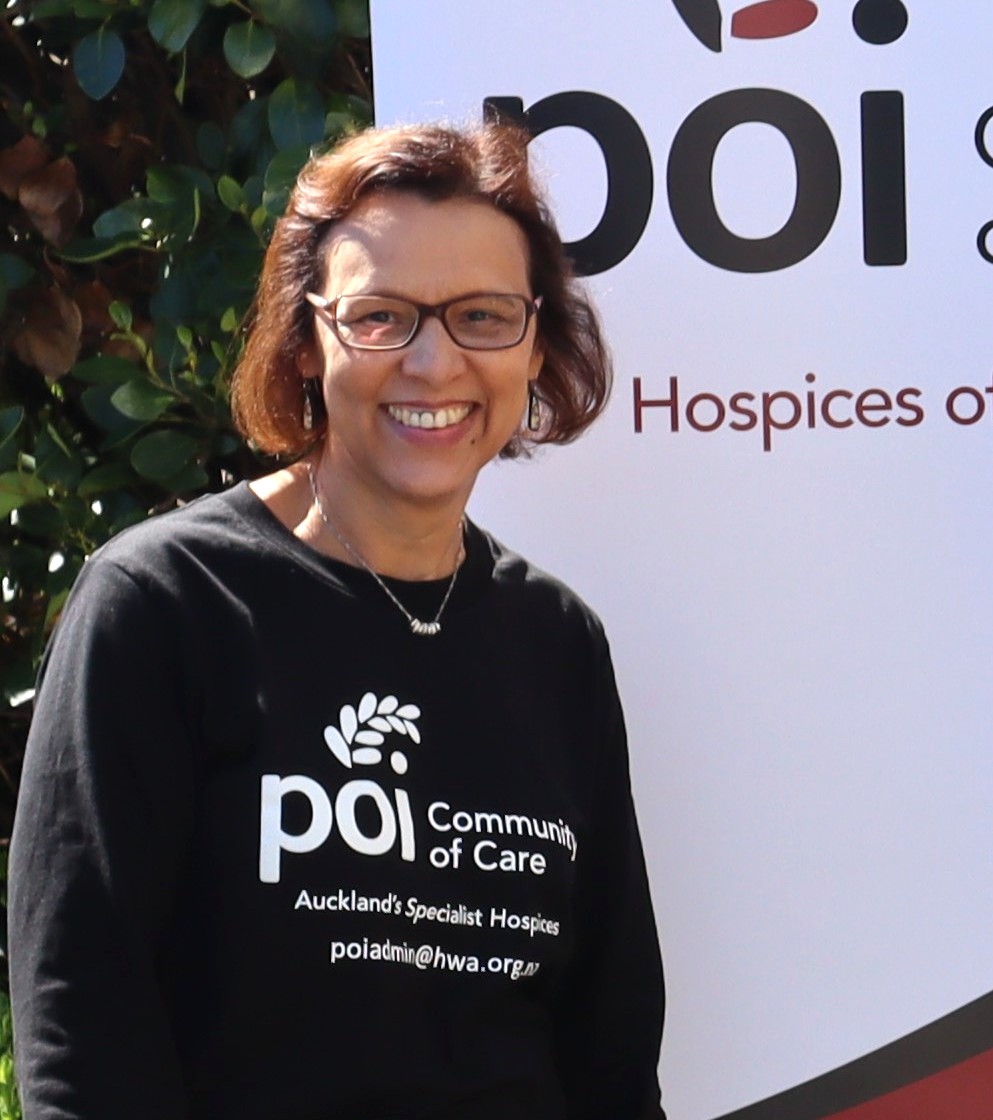
Bernadette
Bernadette and Jing are mindful that people’s needs in the palliative care space can change rapidly. “We often get just one opportunity to review and give advice, so we always think in a forward-looking space,” Bernadette explains. “We have to give anticipatory advice in case things happen. For example, we advise in anticipation of the symptom, pain or shortness of breath changing, and what medicines could be effective if or when that happens.”
The education component of the role involves providing a wide range of training sessions, including virtual learning labs, quarterly networking events, on-site training at aged care facilities, and specialised medicine workshops for healthcare professionals. They adapt delivery to different healthcare settings, as training at aged care facilities can be very different to engaging with busy GP practices.
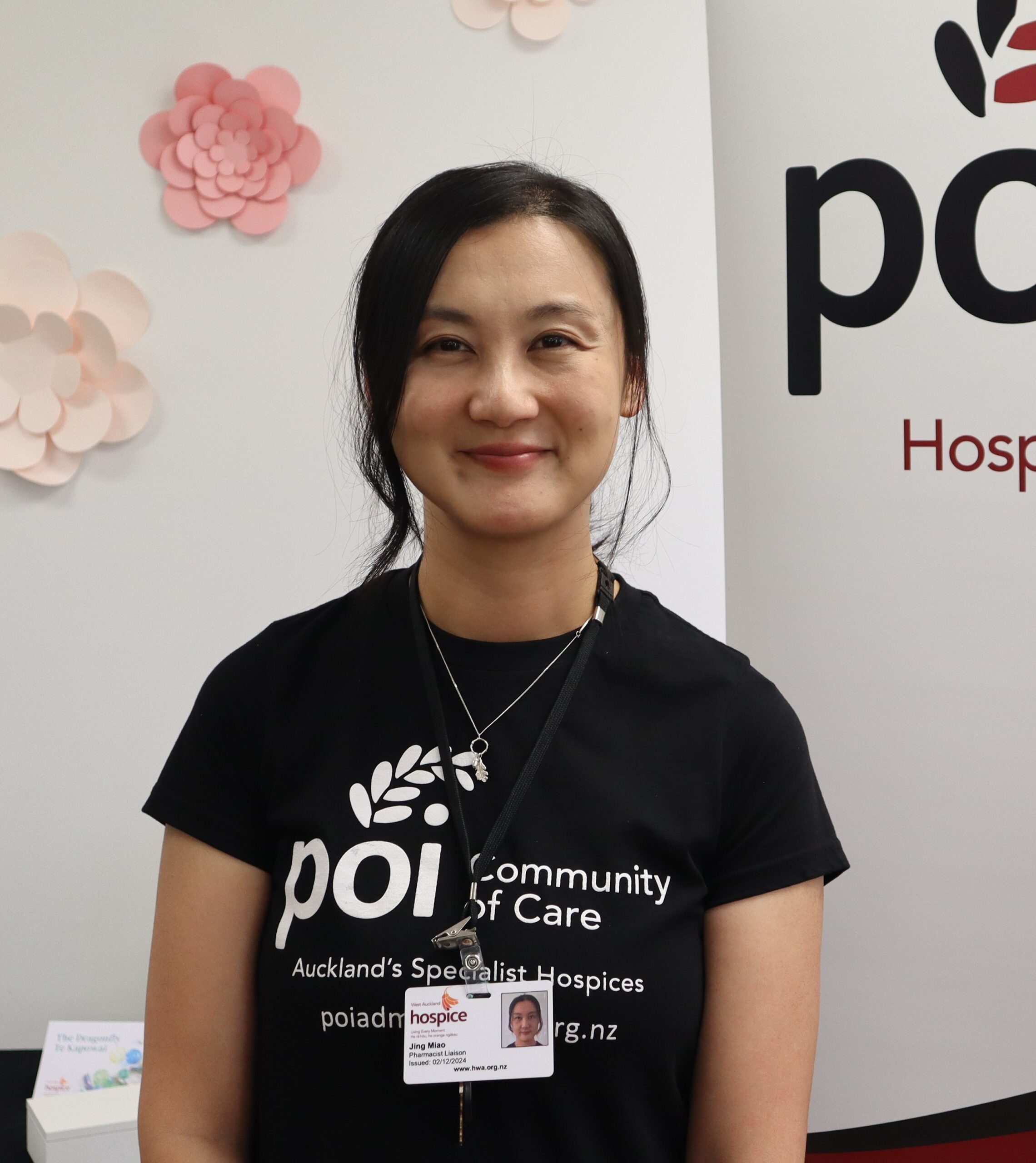
Jing
Jing’s placement involves both Poi and the wider Hospice West Auckland team. It is a unique, immersive opportunity that allows her to gain practical experience in palliative care: “You can’t really learn this unless you’re actually here,” she says. “At the pharmacy I work part-time at, we provide a lot of aged care, and I can see that it’s really important to understand the processes behind the medication – it’s not just about dispensing.”
The team’s interdisciplinary approach and commitment to continuous learning make them a vital support system in palliative care, bridging knowledge gaps and improving patient care. “We can’t see every person in the community who might need palliative care,” Bernadette explains, “but we can empower those who do.”
